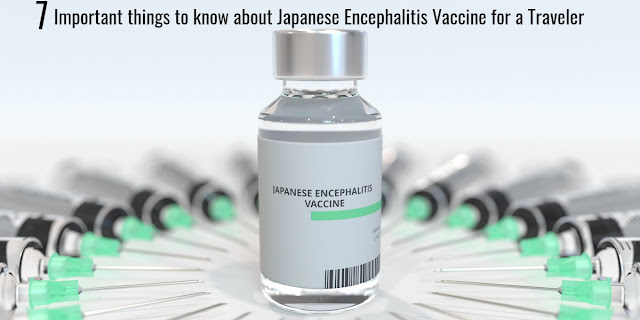7 Important Things to Know About Japanese Encephalitis Vaccine for a Traveler
As a traveller, you need to be extra careful and vigilant about your health. There are many risks that you can be exposed to while travelling, including Japanese Encephalitis.
Not everyone has heard of this virus, and there is certainly not enough awareness about it. This post will cover all that you need to know about it, including the treatment of Japanese Encephalitis - so stick with us!
What is Japanese Encephalitis?
Japanese encephalitis virus is a flavivirus that is related to dengue and yellow fever. It is spread by mosquitoes and has an estimated 68 000 clinical cases per year. Symptomatic Japanese encephalitis is rare, but the case-fatality rate among those with encephalitis can be as high as 30%.
Twenty-four countries in the South-East Asia and Western Pacific regions have endemic JEV transmission, which means that at least 3 billion people to risks of infection.
Moreover, there is no cure for the disease, and treatment is instead focused on relieving severe clinical signs and supporting the patient to overcome the illness. Additionally, safe and effective vaccines are available to prevent the virus.
7 Facts About the Japanese Encephalitis Vaccine Booster
1) People who
get encephalitis from JE can have serious complications, including seizures,
paralysis, brain damage, and even death which makes the vaccine very important.
2) If you’re
living in or planning to travel to parts of Asia where the virus is common,
getting vaccinated can protect you from the virus.
3) Apart from
that, the JE vaccine is only recommended for people who live in or travel to
parts of Asia where JE is a risk.
4) All
travellers to JE-endemic countries should take steps to avoid mosquito bites,
and discuss the need for vaccination with their healthcare provider.
5) Some people
should not get the JE vaccines, including infant aged 2 or younger or people
who have had allergic reactions to ingredients in the vaccine in the past.
6) No studies of
the JE vaccine in pregnant women have been carried out. Therefore,
administration of the JE vaccine to pregnant women usually should be refrained
from.
7) Reactions to the JE vaccine are generally mild and include pain and tenderness, mild headaches, myalgia, and low-grade fevers.
To get the Japanese Encephalitis vaccination in Northampton and to get the Japanese Encephalitis vaccination in Camberley - visit us Touchwood Pharmacy.




Comments
Post a Comment